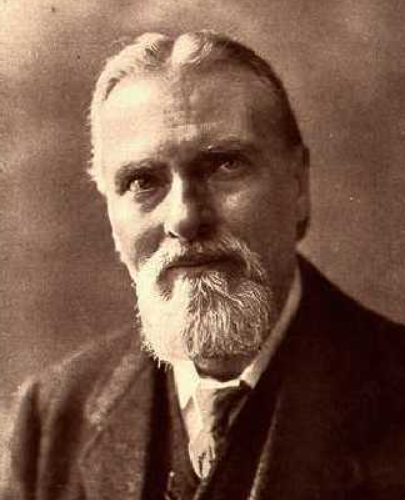

Doubt is the beginning of wisdom. It means caution, independence, honesty and veracity.
G. W. Foote
George William Foote was a freethinker, secularist, and writer, remembered by Sydney Gimson as the deliverer of ‘fine fighting lectures which always had a dignified literary form’. President of the National Secular Society for a quarter of a century, Foote spent most of his life working to promote humanist values, notably freedom of thought and speech, publishing prolifically and organising tirelessly.
George William Foote was born on 11 January 1850 in Plymouth. He was brought up in difficult circumstances, his father having died when he was young, but he had a good education by the standards of the time, which stimulated a life-long interest in literature. He was brought up a Christian.
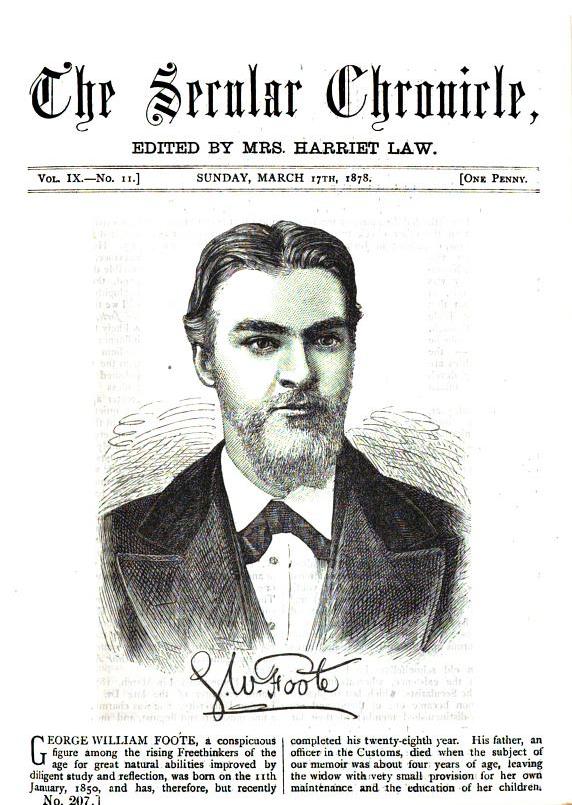
In 1868 he moved to London, first working as a librarian. He soon encountered secularists and became active. At first he was mainly drawn to George Jacob Holyoake and his moderate version of secularism. This became sharply apparent in 1876, when Foote was expelled from the National Secular Society (NSS), and in 1877 when he was one of Bradlaugh’s most vocal critics over the re-publication of The Fruits of Philosophy.
All was to change in 1880 when Bradlaugh was prevented from taking his place in the House of Commons. Up to then, Foote favoured a quiet scholarly life but this enraged him. His solution was to fight fire with fire.
In 1881, Foote rejoined the NSS and in May issued the first number of a new newspaper The Freethinker. He set out his stall in the first issue:
The Freethinker is an anti-Christian organ, and must therefore be chiefly aggressive. It will wage relentless war against Superstition… it will not scruple to employ for the same purpose any weapons of ridicule or sarcasm that may be borrowed from the armoury of common sense.
His belief was that no one could take the religious and religion seriously if they were laughed at. From early on he introduced a weekly Bible cartoon which was particularly hard-hitting and incensed the religious. Such tactics seemed popular: although The Freethinker was launched as a monthly, it soon became weekly.
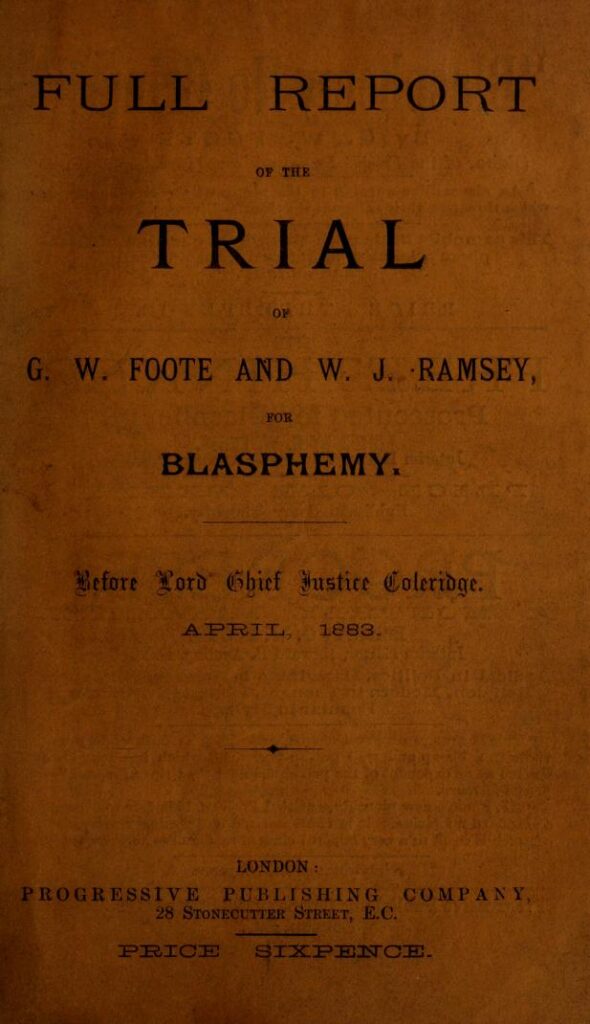
Foote knew he was inviting prosecution, welcomed it, and did all he could to provoke it. He got his wish. Two blasphemy prosecutions were brought against the issues of 28 May 1882 (which included a cartoon strip satirising the life of Christ) and a further cartoon ‘Moses Getting a Back View’. The second came to trial first in March 1883. Foote, as editor, was accompanied in the dock by William Ramsay (shop manager) and William Kemp (printer). They appeared before Lord Justice Sir Ford North, a Roman Catholic, whose attitude was hostile throughout. Despite the Judge’s advice, the jury failed to convict and a retrial was ordered for the following week. The second trial was again held before North and this time the jury convicted. Foote was sentenced to 12 months, Ramsey nine, and Kemp three. The severity of the sentence came as a shock even to Foote’s opponents. Martyrdom had been achieved.
Foote and Ramsey were back in court for a third trial in April on the first charge relating to The Freethinker of 28 May 1882. This time the case was heard by Lord Justice Coleridge who, in contrast to North, treated the defendants with consideration and courtesy. Throughout the trials Foote conducted his own defence. The jury failed to reach a decision and although a retrial was expected this never occurred, the prosecution dropped the case. Foote, Ramsey and Kemp served their sentences at Holloway under the severe regime of a late Victorian gaol. Foote was now well known and received a hero’s welcome on his release. When Bradlaugh stepped down as President of the NSS in 1890, Foote was his successor.
Foote took over at a difficult time. The NSS faced significant challenge partly because progressive opinion was switching from radicalism to socialism and also because opportunities for popular, heroic struggles had declined due to the secularists’ very success. Nevertheless, he managed to hold the NSS together, despite losing some leading characters after Bradlaugh’s death. He also saw the organisation’s transition from being an essentially political movement into a pressure group. Under his Presidency The Freethinker emerged as the NSS mouthpiece and Foote’s weekly editorial was usually interesting, provocative and written with style. During his lifetime he put his name to over 2,000 articles. On the other hand, the NSS was no longer associated with broad radical, political campaigns as it had been under Bradlaugh. It, and The Freethinker, appealed to loyal adherents but was largely ignored by the public at large, many of whom regarded them with distaste.
Foote did give the NSS financial security by forming the Secular Society Ltd which took advantage of Lord Justice Coleridge’s judgement of 1883 legalising bequests for freethought. When Foote’s health broke down in 1913, Chapman Cohen took over the editorship of The Freethinker in everything but name. Foote died on 17 October 1915 amidst the madness of a war that seemed to defy secularists’ faith in human progress.
…to persevere, to fight to the end, is to live (if unknown) in the future of humanity.
G.W. Foote, Flowers of Freethought (1893)
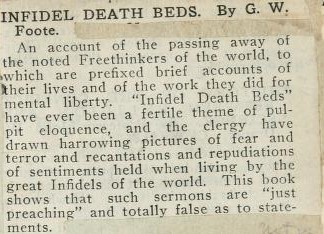
Historian Edward Royle has described G.W. Foote’s tenacious advocacy for freethought as being ‘largely responsible for the survival of secularist radicalism into the twentieth century’. Foote remained devoted to the cause even in the face of financial difficulties and organisational fracture, publishing, lecturing, debating, and editing for as long as his health allowed. Though an outspoken controversialist, behind the scenes Foote was a passionate devotee of literature and learning; deeply humane, and humanist. As one obituary noted:
There have been, in recent years, few men of such uncompromising honesty and candour of character; few men whoso public utterance seemed anti-Christian to the point of intolerance, yet whose private actions were so tolerant, generous, and free from malice or personal ambition.
By Robert Forder
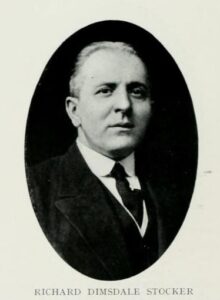
But this much is certain, that, taking the world as we find it, sympathy, plus a modicum of common sense […]
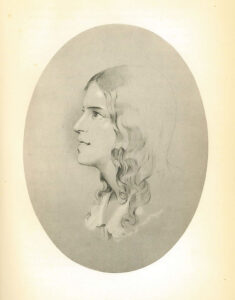
Eliza Flower was a composer, a radical, and a significant influence on William Johnson Fox and the progressive values of […]
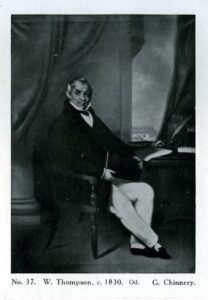
All moral and political wisdom should tend mainly to this, the just distribution of the physical means of happiness. William […]
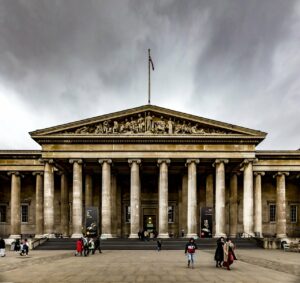
The British Museum is a museum of human history and culture in London. Its collections include objects of humanist heritage […]